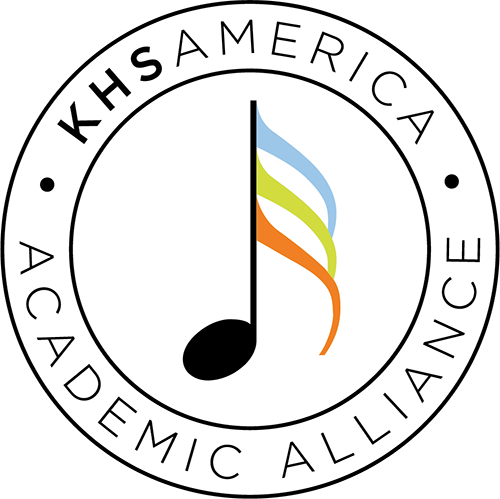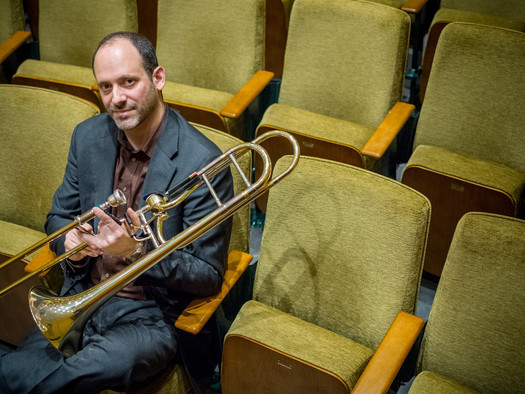For the first time ever, music is now cited in federal statute as a stand-alone subject in schools.
The timing could not be better. After all, provision for the arts in school curricula should be a no-brainer requirement of a well-rounded education. However, just because federal law is changing does not mean that schools are going to immediately adjust their schedules accordingly.
Our information age has become central (for better or worse) in shaping and influencing every waking moment of children’s daily lives – mostly toward a lifetime of consumption and a de-emphasis on creative thought. But if schools enable children to not only have ideas about the world, but to be active participants in it, we will be able to effectively develop a range of qualities and skills in our youth that will empower them to operate in this new age as agents of change instead of apathetic onlookers.
Our society desperately needs to value more than just academic abilities. Our children have unlimited potential and so much more to offer than just good test grades. Music exemplifies these other capacities — intuition, practical skills and creativity, to name a few. Make no mistake: all of our children’s growth will be stunted without music in their lives as part of their school day. If schools do not appropriate the proper resources to music education, our new federal law will do our children little good. And “guided resources” have less to do with actual finances and more to do with changing a long-established negative attitude towards the arts as peripheral to a well-rounded education.
Here are three reasons we need music in our country’s schools now more than ever before:
Music brings us together. Turn on the TV and it won’t take long to see violence, hate, and divisiveness in our country and our world — dark aspects of the human condition that riddle us with fear for the safety of our future generations. Participation in music provides social benefits for students that we desperately need right now in order to perpetuate an acceptance of all walks of life in our society. In short, music is a way to make friends and coexist with others in peace during every school day. Practicing and performing in ensembles is a unique opportunity to socialize with like-minded people, make new friends and meet interesting people from around the world who, without this musical engagement, would not have had the opportunity to meet. Music is blind to academic levels, cultural differences and socio-economic spectra.
Our children need balance in their existence. Right now, schools educate one side of our children’s brains; a little bit of their bodies; and barely any of their souls. There is no doubt that music provide core ways of developing our understanding of our world — there is no way that children will develop their full intelligence and abilities without it in their school life. You see, no one can argue that academic ability isn’t valuable in life, but separating this from other human capabilities in our education system is disastrous on many levels. There is a powerful relationship between emotion through mediums like music and intellect — in both tangible and intangible ways. We need this connection in our schools now more than ever.
Right-brained thinkers will soon rule our world. Gone are the days of logical, linear and reductive thinking running the educational show. The future belongs to creative humans — artists, inventors, designers, and emotional thinkers who manipulate information that is readily available to all of us and deftly turn it into something new. Every child has this capacity — right on the “other side” of their brain — and schools are far behind when it comes to tapping into it. Through years of over-testing, we have seen one type of student flourish while another fails. But this divide (mostly across cultural and socio-economic spectrum) is not a mirror of what is really happening in our world. “Left-Brain” capabilities are not enough, which is why music and the arts is not only crucial as a part of school curricula, it must be an every day part of it.
Through years of brain study, we now know that there are various kinds of ways of thinking and various kinds of intelligence. None of these ways has the right to dominate the others in our school curricula and means of assessment. Our society desperately needs young people who are creative, empathetic, collaborative and mindful thinkers. Creative work — specifically in music — is exactly what our children need right now. They need to play, experiment, expend sustained effort, produce work of high quality, and engage in a unique social environment that leads them on the road to achieving a beautiful and successful adulthood.
There are many forces working against our children in our society, but some of these we can control — including the way we educate them. We all need music now more than ever in our schools.
About the Author
A GRAMMY® nominated music educator, ANTHONY MAZZOCCHI has performed as a trombonist with the Los Angeles Philharmonic, New Jersey Symphony, San Diego Symphony, San Diego Opera, Riverside Symphony, Key West Symphony, in various Broadway shows and numerous recordings and movie soundtracks. Tony has served as faculty or as a frequent guest lecturer at The Juilliard School, Manhattan School of Music, New York University, and Mannes College of Music. He has taught grades 4-college and has served as a school district administrator of fine and performing arts. Tony has been a consultant for arts organizations throughout the NY/NJ area. He is currently Associate Director of the John J. Cali School of Music at Montclair State University in New Jersey and Co-Executive Director of the Kinhaven Summer Music School in Weston, Vermont with his wife, Deborah. To read more from this author, please see his book, The Music Parents’ Guide : A Survival Kit for the New Music Parent. It is available at http://www.amazon.com/dp/B00U6S974G.
The content of this Blog article or Banded Story is the intellectual property of the author(s) and cannot be duplicated without the permission of KHS America and/or the author(s). Standard copyright rules apply.



 We look forward to the evolution of this exciting program, and welcome feedback on how we can further enhance the work that you do in music education.
We are excited to offer your program the opportunity to join the KHS America Academic Alliance today.
We look forward to the evolution of this exciting program, and welcome feedback on how we can further enhance the work that you do in music education.
We are excited to offer your program the opportunity to join the KHS America Academic Alliance today.